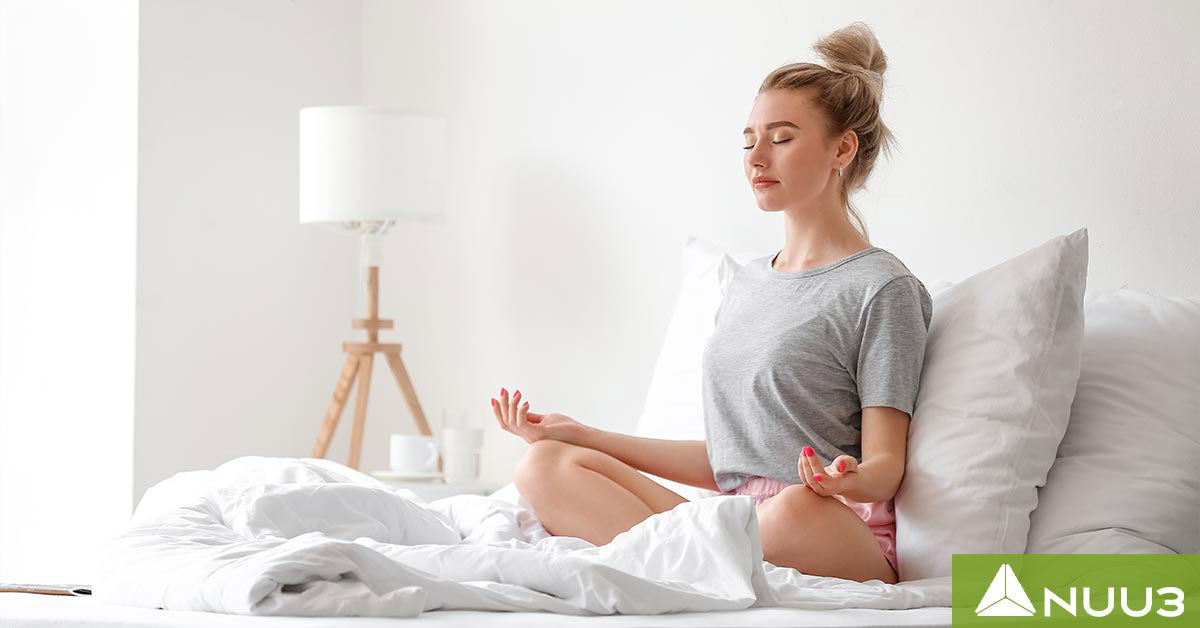Introduction to Meditation for Sleep
In today’s fast-paced world, quality sleep can often feel like a luxury. Stress, anxiety, and endless to-do lists keep many people tossing and turning, unable to quiet their minds for rest. For those searching for a natural, effective way to improve sleep, meditation for sleep has become an increasingly popular solution. This practice harnesses the calming power of focused breathing, mindfulness, and relaxation techniques to help individuals ease into restful sleep, night after night.
Meditation for sleep offers more than just an easier time falling asleep; it’s a holistic approach that promotes mental clarity, emotional resilience, and physical relaxation. By quieting racing thoughts and reducing tension, meditation can help initiate the body’s natural sleep response, offering a gentle yet powerful alternative to sleep aids. Numerous studies have shown that meditation can significantly reduce insomnia symptoms, improve sleep quality, and even positively impact overall health by supporting the body’s natural rhythms.
This guide explores benefits, techniques, and practical steps to help you incorporate meditation into your nightly routine, providing a pathway to restful sleep and a more balanced life. Whether you’re new to meditation or looking to deepen your practice, meditation for sleep can be a powerful addition to your wellness journey.
Benefits of Meditation for Sleep
Meditation offers a range of benefits that may promote restful, high-quality sleep by helping calm the mind, reduce stress, and prepare the body for relaxation. Here’s how it can support better sleep, with an added note on how NUU3 Sleep Support Gummies may complement your meditation practice.
1. Reduces Anxiety and Calms the Mind
Meditation helps to quiet racing thoughts and soothe anxiety, which are common barriers to sleep. Through mindfulness and focused breathing, meditation encourages the brain to shift away from stress and into a calmer, more restful state, making it easier to fall and stay asleep.
2. Activates the Relaxation Response
Meditation triggers the body’s relaxation response, reducing heart rate, lowering blood pressure, and promoting a state of calmness. This can counteract the “fight-or-flight” stress response that often interferes with sleep. Practicing meditation before bed can help prepare the body to wind down naturally.
3. Improves Sleep Quality
Regular meditation practice has been shown to improve sleep quality by promoting deeper, uninterrupted sleep cycles. When combined with NUU3 Sleep Support Gummies, which contain melatonin, users may experience more restful sleep.
4. Decreases Insomnia and Sleep Disorders
For those who struggle with insomnia or other sleep disorders, meditation can offer a powerful tool for managing symptoms. Studies suggest that meditation may decrease the frequency and severity of insomnia, helping individuals fall asleep faster and stay asleep longer.
5. Enhances Overall Well-being
Meditation not only improves sleep but also boosts mental and emotional well-being. With regular practice, individuals often report better focus, mood stability, and reduced stress, all of which support a more restful night’s sleep and a refreshed feeling upon waking.
Adding NUU3 Sleep Support Gummies to your routine can further support relaxation by providing natural ingredients like melatonin, which may ease the body’s transition to sleep, complementing meditation’s calming effects for a more holistic approach.
Types of Meditation Techniques for Sleep
Various meditation techniques can help you relax and transition smoothly into a restful sleep. Each method focuses on different aspects of relaxation and mental clarity, making it easier to find a practice that suits your needs.
1. Guided Meditation
Guided meditation involves listening to a calming voice that walks you through a series of steps to relax and release stress. This can include visualizations, soothing narratives, or deep breathing exercises. Guided meditation is ideal for beginners and can be especially helpful for sleep by easing racing thoughts and creating a serene mental space. NUU3 Keep Calm Gummies may complement this technique, helping promote relaxation before you begin.
2. Mindfulness Meditation
This technique focuses on staying present and observing thoughts without judgment. Mindfulness meditation for sleep can involve observing your breath, noticing physical sensations, or focusing on sounds in the room. Practicing mindfulness helps you let go of daily stresses, making it easier to drift into sleep peacefully.
3. Body Scan Meditation
Body scan meditation involves mentally scanning through each part of your body to release tension and relax. Starting from the head down to the toes, this practice promotes physical relaxation and awareness and may be perfect for reducing physical stress before sleep.
4. Breathing Exercises
Deep breathing techniques, such as the 4-7-8 method, involve taking slow, rhythmic breaths to calm the nervous system. Deep breathing enhances oxygen flow, slows the heart rate, and induces a state of relaxation, preparing your body for sleep.
5. Progressive Muscle Relaxation (PMR)
PMR involves tensing and relaxing each muscle group in the body, which helps release built-up tension and stress. By guiding the body into a state of calm, PMR encourages restful sleep and can be effective for those with high physical stress.
6. Visualization Meditation
Visualization involves imagining peaceful scenes, such as a beach or forest, to help transport the mind to a calming place. This technique distracts from daily worries and promotes relaxation, often making it easier to fall asleep.
Using NUU3 Keep Calm Gummies alongside these meditation techniques can support relaxation before bed. In addition, taking NUU3 Sleep Support Gummies may help deepen sleep quality, giving you a comprehensive approach to achieving a peaceful, restorative night’s rest.
How to Practice Meditation for Sleep
Practicing meditation for sleep can help calm the mind, relax the body, and ease the transition into restful sleep. By incorporating specific techniques and creating a supportive environment, you can address issues like restless sleep and promote a more peaceful night. Here’s how to get started:
1. Create a Calm Environment
- Find a quiet, comfortable space where you won’t be disturbed. Dim the lights, set the room to a comfortable temperature, and consider playing soft, soothing music or white noise to enhance relaxation.
- If restless sleep is a recurring issue, keeping a consistent bedtime routine can help signal to your body that it’s time to relax.
2. Choose a Meditation Technique
-
Start with a technique that feels right for you, such as spiritual meditation, mindfulness, or guided meditation.
-
Spiritual meditation involves focusing on a sense of connection, whether to nature, a higher power, or your inner self, to promote peace and grounding. This practice can be particularly effective for calming a busy mind and preparing it for sleep.
3. Focus on Your Breathing
- Begin with simple breathing exercises. For example, try the 4-7-8 technique: inhale for 4 seconds, hold your breath for 7 seconds, and exhale for 8 seconds. This slows your heart rate and activates the body’s relaxation response, easing you into sleep.
4. Incorporate Guided Meditation
- Listen to a guided meditation session that walks you through visualizations or calming affirmations. This can be especially helpful if you find it difficult to quiet your thoughts on your own.
5. Practice Consistently
- Meditation works best when practiced regularly. Set aside 10–20 minutes each night before bed to establish a habit. Over time, you’ll notice it becomes easier to let go of stress and fall asleep more peacefully.
6. Be Patient with the Process
- If you’re struggling with restless sleep, remember that meditation is a skill that takes time to develop. Focus on small improvements and allow your practice to evolve naturally.
By integrating meditation into your nightly routine and experimenting with techniques like spiritual meditation, you can create a more serene sleep experience and gradually reduce the barriers to a deep, restorative night’s rest.
Tips for Maximizing the Benefits of Meditation for Sleep
Meditation can be a powerful tool for improving sleep quality, but its effectiveness often depends on consistency and approach. Here are practical tips to help you maximize the benefits of meditation for sleep:
Establish a Consistent Routine: Set aside a specific time each night to practice meditation before bed. Consistency helps train your body and mind to associate this routine with relaxation and sleep readiness.
Create a Comfortable Sleep Environment: Ensure your bedroom is quiet, dark, and at a comfortable temperature. Using soft lighting or aromatherapy, such as lavender, can enhance the calming effects of meditation.
Start Small and Gradually Increase: Begin with short sessions of 5–10 minutes if you’re new to meditation. As you become more comfortable, gradually increase the duration to 20–30 minutes for deeper relaxation.
Choose the Right Technique: Experiment with different meditation styles, such as mindfulness, guided meditation, or progressive muscle relaxation, to find the approach that works best for you. Techniques like body scans or breathing exercises are particularly effective for calming a restless mind before sleep.
Use Guided Meditation Tools: Guided meditation apps, videos, or audio tracks can help focus your attention and provide structure to your practice. Options like Calm, Headspace, or Insight Timer are great resources to explore.
Pair Meditation with Healthy Sleep Habits: Combine meditation with good sleep hygiene practices, such as avoiding caffeine or heavy meals before bed, limiting screen time, and sticking to a regular sleep schedule. This holistic approach enhances the effectiveness of meditation.
Be Patient and Persistent: Meditation for sleep is a skill that improves over time. If you don’t notice immediate results, continue practicing consistently. Gradual improvements in sleep quality often emerge with regular use.
Stay Present and Let Go of Expectations: Focus on the process rather than the outcome. Avoid putting pressure on yourself to fall asleep quickly, as this can create tension. Trust that the practice is helping, even if the results aren’t immediate.
Common Challenges with Meditation for Sleep and How to Overcome Them
Meditation for sleep is an effective tool, but it’s not without its challenges. Many individuals encounter obstacles when starting meditation practice, especially when using it to improve sleep. Here are some common challenges and practical ways to overcome them:
1. Racing Thoughts or Anxiety
Challenge:Many people struggle with racing thoughts or heightened anxiety during meditation, making it difficult to relax. This is particularly common when stress levels are high or there’s a strong focus on trying to “clear the mind.”
How to Overcome:Focus on gentle breathing exercises, such as inhaling deeply for 4 seconds and exhaling for 6 seconds, to redirect your attention. Remember, the goal is not to eliminate thoughts but to observe them without judgment. Guided meditation or soothing background music can also help anchor your focus.
2. Difficulty Staying Consistent
Challenge:Busy schedules or a lack of motivation can make it hard to practice meditation regularly. Skipping sessions may lead to frustration or a lack of noticeable results.
How to Overcome:Start with small, manageable sessions (5–10 minutes) and set a specific time each night to meditate. Use reminders or pair meditation with other bedtime rituals, like brushing your teeth, to establish a consistent habit.
3. Falling Asleep During Meditation
Challenge:While falling asleep during meditation isn’t harmful, it may prevent you from fully experiencing its benefits as a relaxation technique before sleep.
How to Overcome:Try meditating in a seated position rather than lying down. Focus on techniques like body scans or mindfulness, which encourage relaxation without completely disengaging. If falling asleep feels natural and beneficial, embrace it as part of your transition to rest.
4. Physical Discomfort
Challenge:Sitting or lying in an uncomfortable position can make it hard to relax, leading to fidgeting or restlessness.
How to Overcome:Choose a comfortable position that works for you, whether it’s lying down in bed or sitting in a supportive chair. Use cushions, blankets, or eye masks to enhance your comfort and minimize distractions.
5. Impatience or Unrealistic Expectations
Challenge:Expecting immediate results or becoming frustrated when sleep doesn’t come quickly can create tension, counteracting the benefits of meditation.
How to Overcome:Approach meditation with patience and a mindset of self-compassion. Focus on the process rather than the outcome, trusting that consistent practice will yield results over time.
6. Overthinking the Technique
Challenge:Worrying about whether you’re meditating “correctly” can create stress and distract from relaxation.
How to Overcome:Remember, there’s no “wrong” way to meditate. Focus on your breath or a soothing focal point, and allow the practice to feel natural. Guided meditation can provide structure and ease any uncertainty about technique.
Scientific Evidence on Meditation for Sleep
Meditation has been extensively studied for its impact on sleep, and growing evidence supports its effectiveness in improving sleep quality and managing sleep disorders. Here are key scientific findings that highlight the benefits of meditation for sleep:
Meditation Reduces Insomnia Symptoms
- A study published in JAMA Internal Medicine (2015) found that mindfulness meditation significantly reduced symptoms of insomnia among older adults. Participants practicing meditation experienced better sleep quality compared to those who only received sleep hygiene education.
- Conclusion: Meditation may provide a non-pharmacological alternative for those struggling with insomnia.
Improves Sleep Quality and Duration
- Research in Sleep Journal (2018) showed that meditation improves sleep efficiency and total sleep time by promoting relaxation and reducing arousal in the nervous system.
- Meditation helps the body transition from a heightened “fight-or-flight” state to the “rest-and-digest” state essential for restorative sleep.
Alters Brainwave Activity for Deeper Sleep
- Meditation has been shown to increase alpha and theta brainwave activity, which are associated with relaxation and deep sleep. A study published in Frontiers in Psychology (2019) demonstrated that individuals practicing meditation regularly showed improved slow-wave sleep, the most restorative sleep phase.
Reduces Stress and Cortisol Levels
- Chronic stress and high cortisol levels are common contributors to sleep disturbances. A study in Psychoneuroendocrinology (2013) found that meditation reduces cortisol levels, creating a calmer state conducive to sleep.
Enhances Sleep for People with Chronic Conditions
- Meditation has been particularly beneficial for individuals with chronic conditions like anxiety, depression, and pain, which often interfere with sleep. A meta-analysis in the Annals of Behavioral Medicine (2020) found that mindfulness-based interventions improved sleep outcomes in these populations.
Frequently Asked Questions
How Long Does it Take For Meditation to Improve Sleep?
Regular practice can show improvements in sleep quality within 2 to 4 weeks for most people.
Is it Okay to Fall Asleep During Meditation?
Yes, it’s perfectly fine to fall asleep during meditation. Falling asleep indicates relaxation, which is the goal of sleep meditation.
How Long Should a Sleep Meditation Session Be?
Sleep meditation sessions can range from 5 to 30 minutes, and 10–20 minutes is generally effective for most people.
Can Children or Teens Practice Meditation For Sleep?
Yes, meditation is safe for children and teens and can be adapted to suit their needs for relaxation and better sleep.
Conclusion: Embracing Meditation for Better Sleep
In conclusion, meditation is a gentle yet effective way to support better sleep by calming the mind, reducing stress, and easing the body into relaxation. Whether through mindful breathing, guided sessions, or progressive relaxation techniques, regular meditation practice may improve sleep quality and promote a more restful night. With consistent effort, meditation can become an invaluable part of your bedtime routine, helping you achieve deeper, more rejuvenating rest.










